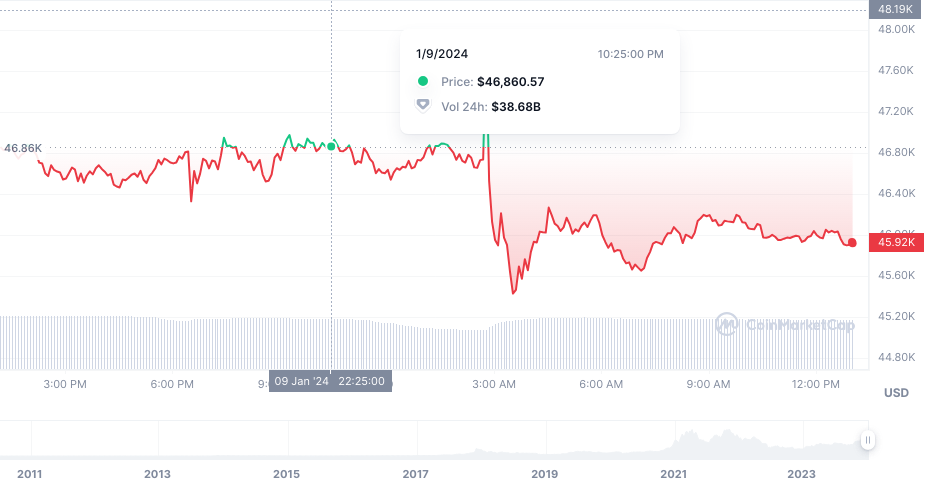The recent approval of Bitcoin Exchange-Traded Funds (ETFs) has sent ripples through the financial world, heralding a new era for the original cryptocurrency. As Bitcoin takes center stage in traditional finance, one sector poised for significant impact is Bitcoin mining. In this blog post, we delve into what the advent of Bitcoin ETFs means for the dynamic landscape of Bitcoin mining and the broader crypto ecosystem.
Accelerated Institutional Interest:
1. Increased Capital Inflows:
- The approval of Bitcoin ETFs is expected to amplify institutional interest in the cryptocurrency space. This surge in interest translates to increased capital inflows, potentially leading to a more robust and sustainable Bitcoin mining ecosystem.
2. Mining Infrastructure Investments:
- With institutional investors seeking exposure to Bitcoin through ETFs, there’s a heightened likelihood of significant investments in mining infrastructure. This infusion of capital can fuel the expansion and optimization of mining operations, contributing to increased hash rate and network security.
Evolving Mining Dynamics:
1. Global Hash Rate Surge:
- The approval of Bitcoin ETFs could trigger a global surge in mining activities. As more investors and institutions allocate funds to Bitcoin, the overall hash rate of the network is likely to experience a notable increase, further securing the blockchain.
2. Mining Difficulty Adjustments:
- A surge in mining activities may prompt adjustments in the mining difficulty. Bitcoin’s difficulty algorithm ensures that blocks are mined at a relatively constant rate, approximately every 10 minutes. An influx of mining power could lead to increased difficulty, balancing the network.
Implications for Small-Scale Miners:
1. Challenges and Opportunities:
- While institutional interest is positive for the overall health of the Bitcoin network, small-scale miners may face increased competition and challenges. However, this influx of institutional capital also brings opportunities for collaboration, partnerships, and innovations within the mining sector.
2. Adaptation and Innovation:
- The evolving dynamics of the mining landscape will necessitate adaptation and innovation. Small-scale miners may explore niche opportunities, alternative consensus mechanisms, or join mining pools to remain competitive in a changing environment.
Future Prospects:
1. Sustainable Mining Practices:
- Increased attention on Bitcoin mining, driven by ETFs, may accelerate the shift toward sustainable and environmentally friendly mining practices. Innovations in energy-efficient mining technologies and renewable energy sources could gain prominence.
2. Global Mining Distribution:
- The influx of institutional capital and the focus on Bitcoin mining could lead to a more geographically distributed mining landscape. This decentralization is in line with the ethos of Bitcoin and contributes to the network’s resilience.
Conclusion:
The approval of Bitcoin ETFs marks a monumental shift in the perception and adoption of Bitcoin within traditional finance. As institutional interest in Bitcoin grows, the impact on the mining sector is inevitable. The dynamics of mining will evolve, presenting challenges and opportunities for miners of all scales. As we navigate this transformative period, BitlyFool.com remains committed to providing insights and analysis on the latest developments shaping the future of Bitcoin and the broader crypto ecosystem. 🌐⛏️💡





